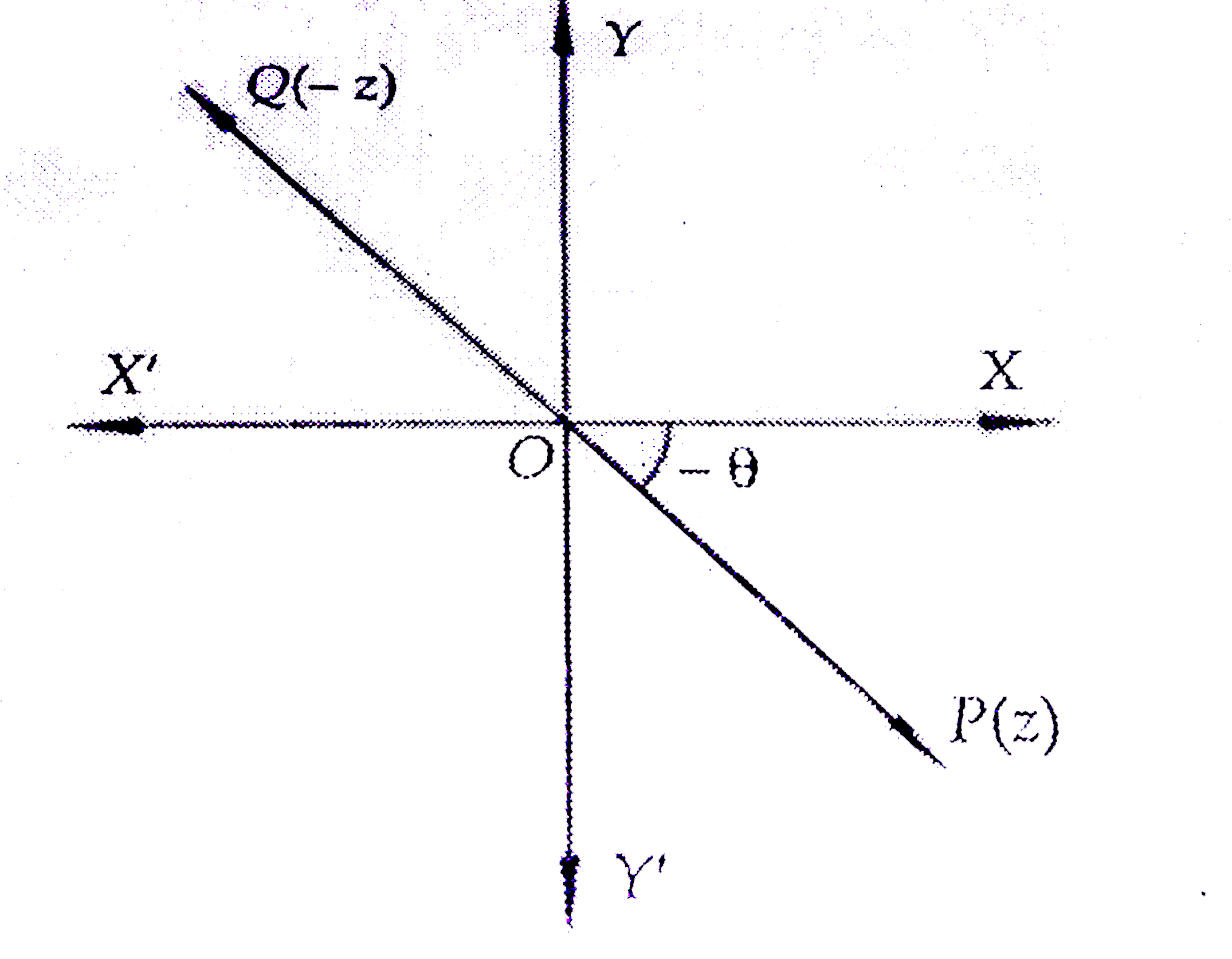If arg(z)<0, then arg(−z)−arg(z)=
A
π
B
−π
C
π2
D
π2
Video Solution
Text Solution
The correct Answer is:A
Let arg(z) =-0 where θ>0 ltgtgt It is evident from the figure that
∴arg(−z)−arg(z)=π−θ−(−θ)=π

|
Topper's Solved these Questions
- COMPLEX NUMBERS BOOK - OBJECTIVE RD SHARMACHAPTER - COMPLEX NUMBERS EXERCISE - Section II - Assertion Reason Type
15 Videos
- COMPLEX NUMBERS BOOK - OBJECTIVE RD SHARMACHAPTER - COMPLEX NUMBERS EXERCISE - Exercise
131 Videos
- COMPLEX NUMBERS BOOK - OBJECTIVE RD SHARMACHAPTER - COMPLEX NUMBERS EXERCISE - Chapter Test
59 Videos
- CIRCLESBOOK - OBJECTIVE RD SHARMACHAPTER - CIRCLESEXERCISE - Chapter Test
55 Videos
- CONTINUITY AND DIFFERENTIABILITYBOOK - OBJECTIVE RD SHARMACHAPTER - CONTINUITY AND DIFFERENTIABILITYEXERCISE - Exercise
86 Videos
Similar Questions
Knowledge Check
Let z=a+ib+(a,b) be any complex number, ∀a,b,∈Randi=√−1. If (a,b)≠(0,0), then are(z)=tan−1(ba), where arg (z)≤π
If arg(z)>0, then arg(−z)−arg(z)=λ1and if arg (z) <0, then arg (z)- arg (−z)=λ2, whereAλ1+λ2=0Bλ2−λ2=0C3λ1−2λ2=0D2λ1−3λ2=0If z is purely imaginary and Im(z)<0, then arg(i¯z)+arg(z) is equal to
AπB0Cπ/2D−π/2If argz=π4 ,then
ARe(z2)=9lm(z2)Blm(z2=0CRe(z2)=0DRe(z)=0
arg(¯z)=−arg(z)
View SolutionIf arg(z)<0, then arg(−z)−a r g(z) equals π (b) −π (d) −π2 (d) π2
View SolutionLet z be a complex number such that the principal value of argument, argz>0. Then arg z-arg(-z) is
View Solutionarg(¯z)+arg(−z)={π,if arg (z) <0−π,if arg (z) >0,where−π<arg(z)≤π.
If arg(4z1)−arg(5z2)=π, then ∣∣∣z1z2∣∣∣ is equal to
View SolutionIf −π<arg(z)<−π2, than arg (¯z)−arg(¯z) is equal to
View Solution
